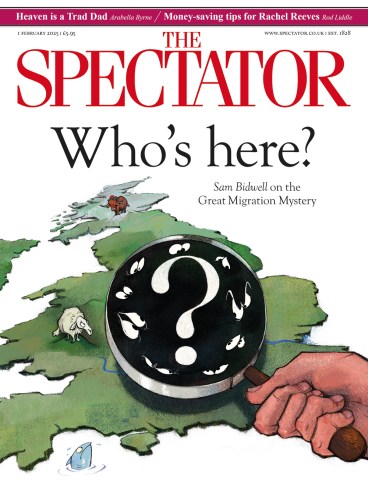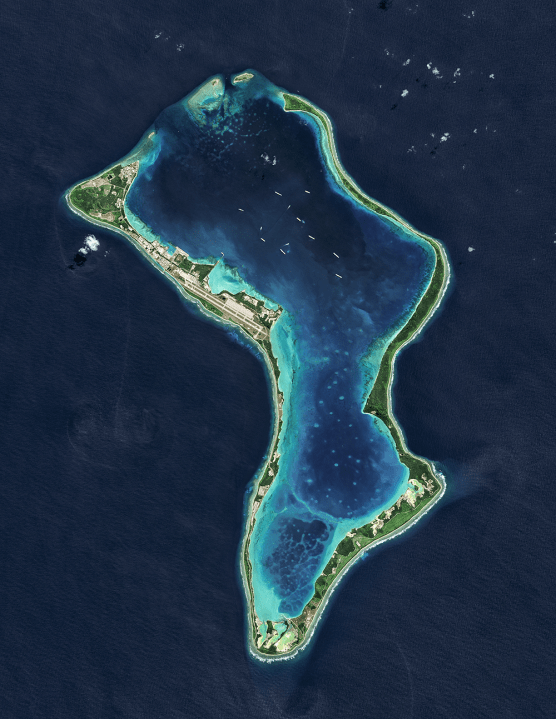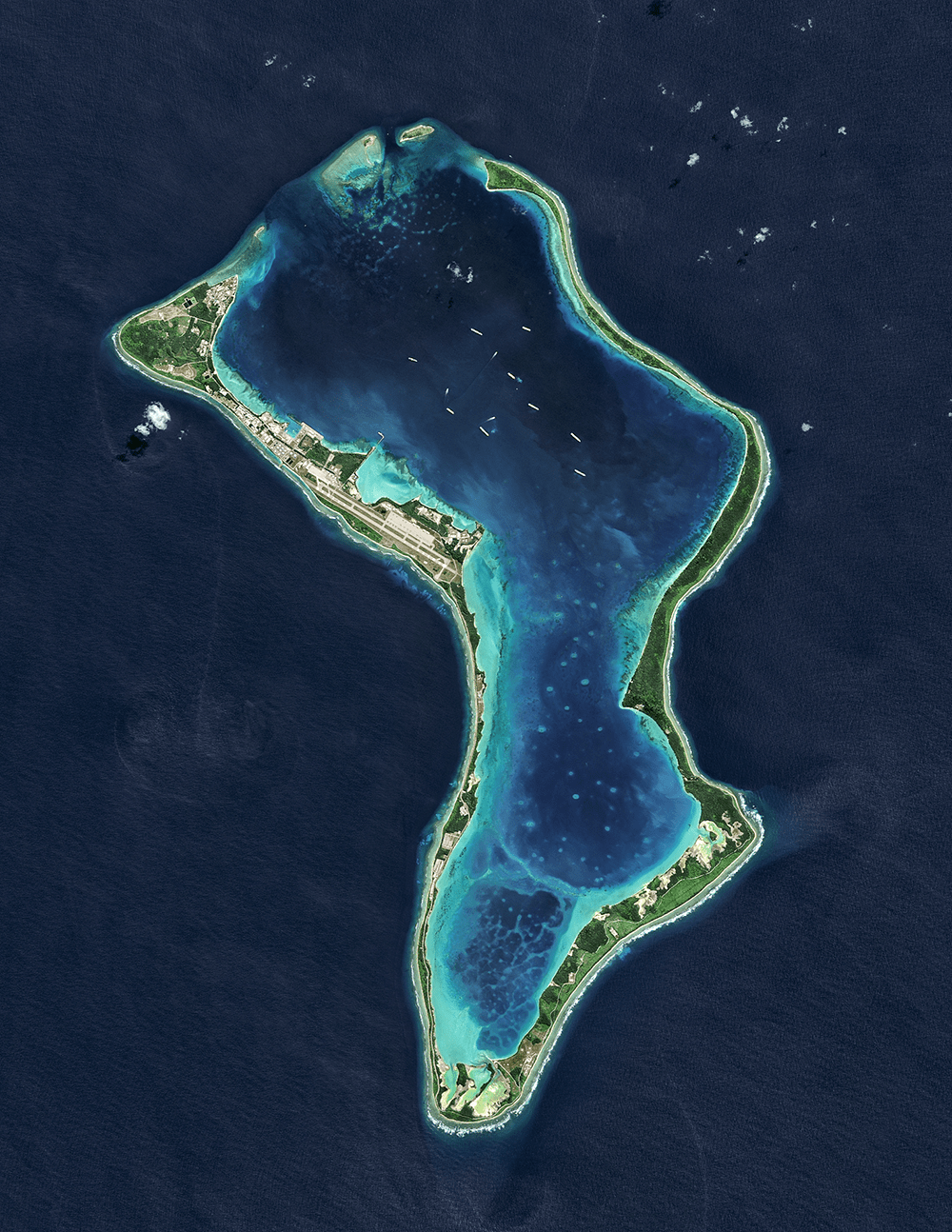
Very soon – as soon as the mutual courtesies now being exchanged between the new American President and his British counterpart are over – our government is likely to be at loggerheads with Donald Trump over our plan to cede the British Indian Ocean Territory (BIOT), the Chagos archipelago, to Mauritius, then take out a long and expensive lease on the island of Diego Garcia so we can secure the operational status of our base there. This accommodates an American base of great importance to US defence.
The agreement with the new Mauritian government has yet to be signed. It has been widely criticised here in the United Kingdom as surrendering what is ours; but our government has accepted a 2019 advisory judgment by the International Court of Justice (ICJ) ruling that Britain should not have kept the BIOT when in 1968 we granted independence to our former colony of Mauritius, because the islands (though far distant from Mauritius) belonged rightfully to Mauritius.
The United States, meanwhile, in the person of its new President and his team, is now fiercely opposed to the deal, believing that Mauritius’s links with China threaten the future security of its base; not least because Mauritius will control the other islands in the archipelago, and the seas around them.
That this columnist shares the dissatisfaction felt both within Britain and on the other side of the Atlantic about this proposed deal is beside the point. To conclude the deal is now the declared policy of His Majesty’s Government (HMG). Trump has set his face against it, and the Americans, who have ignored ICJ rulings before, would do so again in this case without many qualms. So what is to be done?
Britain can in theory proceed with the deal. We have possession of the islands – the ICJ judgment was advisory, not binding. It envisaged a voluntary transfer of sovereignty. We can ignore it. But if we do, the UN Security Council has the power to ‘require’ us to cooperate, and HMG will not wish to become involved in the unholy row that would follow.
If, however, we sign the agreement, cede the territory and pay Mauritius for the envisaged lease, it’s likely that an even more unholy row would ensue – with Trump and the US State Department. My guess is that if there must be an unholy row, we’d prefer it not to be with the Americans. At a moment when so many tricky issues and potential conflicts of interest loom – over Trump’s threats to impose tariffs on European nations, for instance – an angry spat over the Chagos deal would be a dreadful way to begin our relationship with the new US administration.
So one way to proceed would be to surrender to Trump’s demand and back out of the proposed deal, saving face perhaps by arguing that although this was ostensibly a bilateral agreement with Mauritius, it was always essentially tripartite, because of the huge US interest in securing its military base. Now that Washington is opposed (we would say) we cannot go ahead. The facts have changed. We would then have to face the music with the ICJ and perhaps the UN Security Council, though of course we have a veto there and the Americans would support us. The Prime Minister would have the opposition’s backing, good support from the media and public opinion, and the satisfaction of seeing the Lib Dems squirm.
Elements within his party, however, would be unhappy and, though he and his Foreign Secretary, David Lammy, could easily ride that out, a bigger worry (I’m guessing) would be Sir Keir Starmer’s own unhappiness. He’s a lawyer and a believer in the ICJ; Jonathan Powell, who has helped devise this proposed deal, is hardly a left-wing activist, and it seems to have had the Foreign Office’s blessing. To find himself up against what he believes to be international law would trouble Starmer’s conscience. This isn’t his or Lammy’s idea of Britain’s role in the world.
My guess is that if there must be an unholy row, we’d prefer it not to be with the Americans
I believe there is, however, another way – though it is hardly ideal. We should start by asking V.I. Lenin’s question ‘Who, whom?’. In other words, whose interests are we looking at here? America’s obviously. Britain in the 21st century has little interest in the possession of a far-flung scattering of islands. We maintain a base on Diego Garcia because the Americans want one; and they really do need it – it’s a key part of their defence strategy, and a massive and unsinkable aircraft carrier in the middle of the Indian Ocean.
Well then, if they want and need Diego Garcia and if nobody else lives there (disgracefully, we cleared out the inhabitants in the last century) then it is they who should lead, not hide behind us.
Many years ago I wrote advocating that we sell Diego Garcia to the United States. Since then, a former attorney general has advised me that our treaty commitments require us to offer such territory first to the Mauritians, should we wish to divest ourselves of its possession. So here’s a tripartite deal that could, I believe, satisfy all sides. We cede the whole BIOT to Mauritius, on condition that it sells it to the United States.
The ICJ should then be satisfied. Former colonies are surely entitled to sell territory, particularly where there are no inhabitants. We, meanwhile, have discharged ourselves of the ICJ-deemed obligation to give the islands back to our former colony. The Americans get a base that’s secure and theirs – like Guantanamo Bay. And the Mauritians, if they’re smart, get a massive bung beyond the dreams of national avarice – for they too have no real need for the archipelago, front-loaded as they’ve been demanding of the proposed leaseback to Britain. I’m thinking in terms of a $100-$200 billion ballpark.
And we British would be – praise be – out of it. We don’t need the place. We don’t want to upset Washington. We don’t want a fight with the ICJ. And we’d like to conclude an amiable deal with our former colony of Mauritius. What could possibly go wrong?
Watch more on Spectator TV:









Comments